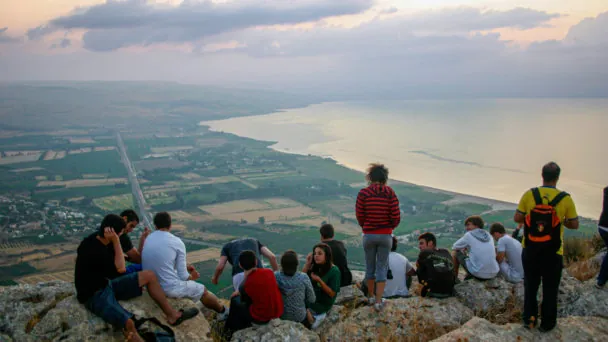En fouillant dans les anciens rapports et documents de Maoz Israël pour la série "Comment tout a commencé" sur les débuts de Maoz et d'Israël dans son ensemble, nous sommes tombés sur des notes de journal qu'Ari a tenues lorsqu'il combattait pendant la première guerre du Liban au début des années 1980. Ce récit couvre son appel en mars-avril 1983. Ces notes constituent une rare vision de l'intérieur d'une période unique en Israël. Si vous avez lu l'article du mois dernier dans le Maoz Israel Report, "The Major and the Millionaire", ces entrées de journal vous donneront un aperçu plus intime de ce qui se passait à cette époque précise de la vie d'Ari en tant que soldat de Tsahal. -Shani Sorko-Ram Ferguson
Lundi - 1er jour
J'ai été appelé au service de réserve dans l'armée. Chaque année, on nous appelle pour un mois ou deux afin de renforcer nos compétences dans les réserves. Mais en temps de guerre, notre temps de service est incertain. Lorsque j'arrive, je vois des centaines de soldats qui attendent des bus. On me dit que ma destination est le Liban. Nous sommes transférés dans une base militaire où nous recevons des armes, des uniformes et un lit pour la nuit.
Mardi - 2ème jour
Notre bus se dirige vers le nord et traverse le Liban en passant par la fameuse "bonne barrière". Bien qu'il fasse froid, nous roulons avec nos fenêtres baissées et nos armes pointées vers l'extérieur. Hier, une embuscade a été tendue par l'OLP (Organisation de libération de la Palestine de Yasser Arafat) et neuf soldats israéliens ont été grièvement blessés.
Nous arrivons sans encombre à notre base qui se trouve dans une ville libanaise. Là, nous recevons nos affectations locales. Je participe à la patrouille de l'eau, ce qui signifie que notre véhicule armé escorte le camion qui apporte l'eau à nos bases. Nous surveillons principalement les embuscades ou les mines posées dans les nids-de-poule des routes libanaises.
Vendredi - 5ème jour
Contrairement à l'armée américaine dans laquelle j'ai également servi, Israël essaie de renvoyer chez eux le plus grand nombre possible de soldats pour le shabbat. Mais comme je suis de service le week-end, je ne rentre pas chez moi. L'armée observe strictement les jours fériés et le shabbat. Lorsque vient l'heure du repas du shabbat sur la base, tout le monde s'assoit à table et les portes sont verrouillées. Personne n'entre ni ne sort et personne ne mange tant que les prières et les bénédictions ne sont pas terminées.
Je sens que la plupart des soldats ne sont pas religieux, mais qu'ils respectent Dieu et honorent le sabbat. Tout le monde a participé à la bénédiction du sabbat avant le repas, puis le réfectoire a été rempli de chants tirés des Psaumes et de la Bible.
Samedi - 6ème jour
Je monte la garde à 6 heures du matin. Soudain, un Arabe commence à marcher vers moi, en état d'ébriété. Je lui demande ce qu'il veut. Il crie quelque chose en arabe. Je lui parle en hébreu, en anglais et en français (de nombreux Libanais parlent français). Il continue à se diriger vers moi en criant toujours en arabe. Il pourrait très bien être armé ou posséder une grenade.
Je lui crie de façon plus agressive d'arrêter. Il continue à se diriger vers moi. J'ouvre le verrou de sécurité de mon arme, ce qui produit un clic sonore. Il continue à s'approcher, en baragouinant tout le long du chemin. Je fais d'autres gestes, parlant en trois langues. Les Arabes qui nous entourent commencent à nous regarder tandis qu'il se dirige vers moi. Je charge une balle dans la chambre, ce qui attire l'attention de tout le monde. Un citoyen local saute d'une voiture, l'attrape et l'emmène. J'inspire profondément et remercie silencieusement Dieu de m'avoir évité de blesser qui que ce soit.
Mercredi - 10ème jour
Je suis autorisé à rentrer chez moi pour quelques jours. En quittant le Liban, j'ai l'occasion d'observer la campagne. Je la compare aux images d'actualité que j'ai vues l'été précédent, lorsque Yasser Arafat a conquis puis contrôlé la région. Cela fait moins d'un an que les FDI, avec leur allié, l'armée du Sud-Liban, ont libéré la région. Alors que, sous Arafat, les champs étaient délabrés, abandonnés et en friche, les agriculteurs ont repris leurs activités. Dans toutes les vallées, les vergers sont entretenus. Les enfants jouent partout. Les terrains de football sont remplis de jeunes. Les magasins regorgent de marchandises et de produits. Les bruits d'achat et de vente, qui avaient diminué sous le régime de l'OLP, reviennent en force.
Je suis très heureux de rentrer à la maison pour retrouver Shira et les enfants. J'apprécie un lit où mes pieds ne pendent pas et où les couvertures me couvrent.
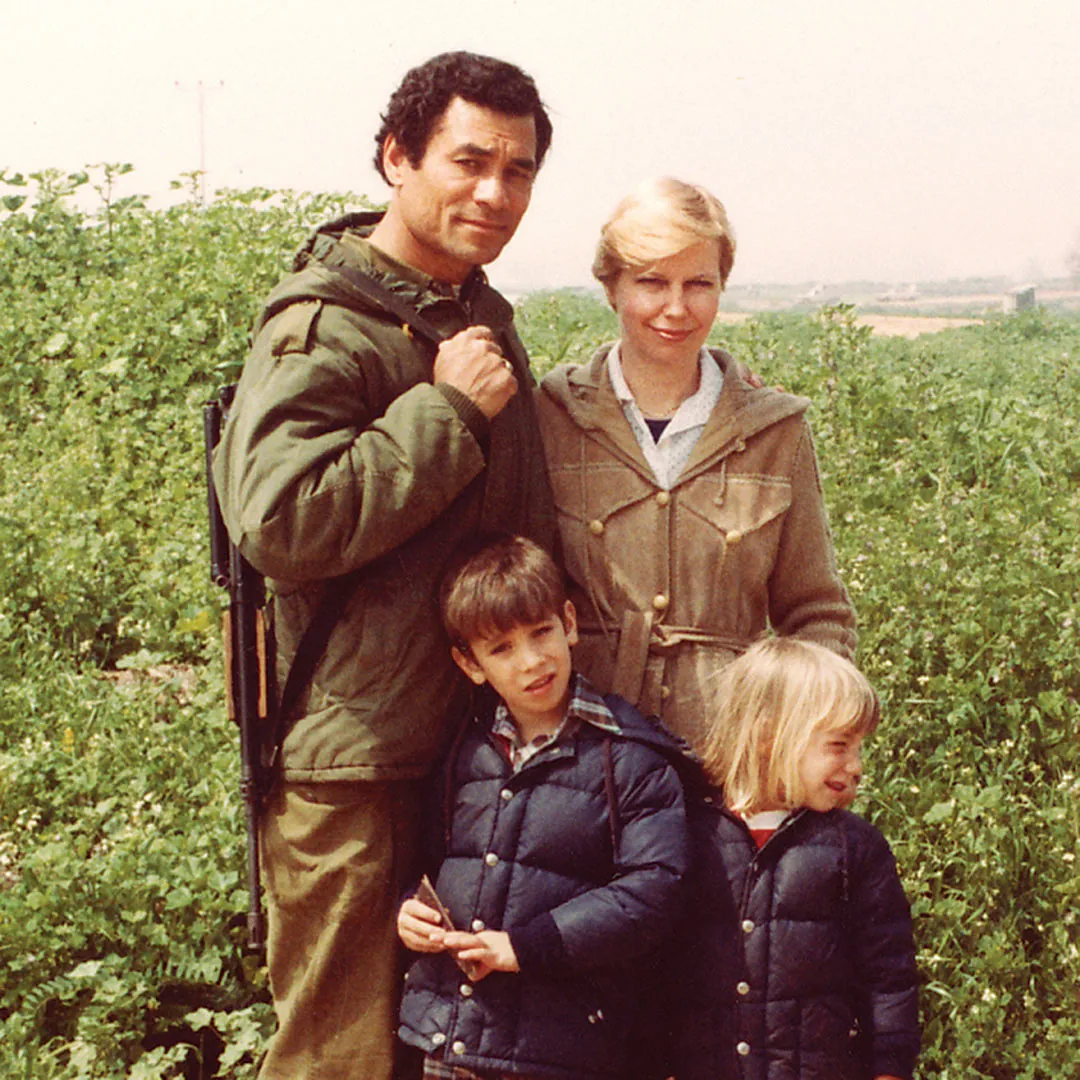
Ari, Shira, Ayal et Shani photographiés à l'extérieur de leur maison lorsque Ari est rentré du Liban pour un week-end de repos.
Dimanche - 14ème jour
Il me faut une bonne partie de la journée pour rentrer de Tel Aviv à la base au Liban. À mon arrivée, j'apprends que deux de nos officiers ont été tués lorsque leur véhicule a roulé sur une mine terrestre posée la nuit précédente. Je reviens rapidement à la réalité : bien qu'un cessez-le-feu ait été signé, la guerre est toujours en cours et des gens perdent encore la vie. Nous effectuons notre patrouille de routine avec le camion-citerne.
Lundi - 15ème jour
Je suis de garde. Le major Haddad (chef de l'armée du Sud-Liban) arrive à la base avec plusieurs de ses aides militaires et un infiltré de l'OLP qui a été capturé. Comme j'ai interviewé le major Haddad à plusieurs reprises, notamment dans le cadre du film que nous avons réalisé pour les stations de radio et de télévision de George Otis, nous échangeons un signe de tête amical.
Je me demande s'il est aussi réconforté que moi - nous savons tous deux que lui, chef de l'armée libanaise, et moi, soldat israélien, sommes de nouveaux croyants.
Mardi - 16ème jour
Je me lève à 4h45 du matin pour mes dévotions, en pensant aux officiers qui ont été tués. Pourtant, je sens que Dieu est près de moi.
C'est l'heure de mon tour de garde. Aujourd'hui, nous avons reçu l'ordre de ne laisser personne quitter la base sans qu'il y ait au moins un véhicule d'escorte avec un minimum de trois personnes dans chaque véhicule, et tous doivent porter un gilet pare-balles à chaque fois qu'ils quittent la base. Et c'est moi qui dois annoncer la nouvelle.
Le pandémonium éclate. Une file de véhicules transportant tous les soldats, du général au simple soldat, s'étire à perte de vue. Chacun a sa propre histoire pour expliquer pourquoi il n'a pas à se conformer aux règles. Pendant une heure et demie, les gens me reprochent de ne pas les laisser sortir de la base. Avec l'aide de Dieu, je garde mon sang-froid. À la fin, j'apprends qu'un haut responsable de l'éducation militaire a suivi toute l'affaire et veut me transférer dans sa division.
La veille de la Pâque
Ce soir, c'est la Pâque. La plupart des soldats seront à la maison pour le Seder traditionnel. Même si notre famille est déçue que je ne sois pas à la maison pour la Pâque, je me rends compte que Dieu a peut-être une raison pour que je reste sur la base. Shira pense également que le Seigneur a une raison particulière pour que je reste sur la base pendant cette période. Peu de temps après avoir terminé mon service du matin, j'ai commencé à voir la main de Dieu agir.
J'étais retourné dans ma chambre et j'étais assis sur mon lit en train de répéter des accords sur ma guitare pendant que les gens se pressaient autour d'eux pour préparer le Seder. Comme il n'y a pas beaucoup de divertissements pour les soldats, il n'a pas fallu attendre longtemps pour qu'une douzaine de soldats se rassemblent dans ma chambre et me demandent de chanter pour eux. J'ai chanté plusieurs chansons, y compris des chants de louange comme "Ronu Shamayim", tiré des Psaumes, qui signifie "Que les cieux se réjouissent". Naturellement, la question a été posée : "Êtes-vous dahti (religieux) ?" J'ai répondu : "D'une certaine manière, selon les Écritures."
Lorsqu'on m'a demandé de préciser si cela signifiait que j'étais orthodoxe, conservateur ou réformé, j'ai répondu que cela signifiait que j'étais un juif messianique. Pendant plusieurs heures, nous avons discuté de tout, depuis le plan de Dieu pour la restauration et le salut du peuple juif jusqu'à une conversation approfondie sur le "prophète" dont Moïse avait dit qu'il se lèverait après lui.
Par la suite, un homme d'origine orthodoxe m'a dit qu'il voulait lire les Écritures pour confirmer ce que je disais. Je l'ai assuré que Dieu honorerait sa recherche et que je l'aiderais à trouver les versets.
Soirée de la Pâque
Le Seder était bien organisé, même si le rabbin qui le dirigeait manquait de charisme. La plupart des soldats connaissaient tous les chants traditionnels et je pouvais voir qu'ils avaient un fort désir de célébrer quelque chose. La Haggadah a donc été lue rapidement, pour la forme, et le repas a été pris. Après le repas, les soldats ont pris le relais et ont commencé à chanter leurs propres chansons. C'était une fête culturelle que d'entendre des Juifs du monde entier apporter leurs chants bibliques du Yémen, d'Amérique du Sud, d'Amérique du Nord, d'Europe et d'Afrique.
Jour de la Pâque
Garde à 6 heures du matin. La première heure et demie est très calme car c'est un jour férié. J'ai eu un grand moment de prière. Vers 7h30, un des soldats est venu à la porte pour me parler de ma conversation de la veille.
Ce soir-là, je priais dans ma chambre lorsqu'un homme que j'appellerai Shaul, qui partageait la même chambre que moi, a pris la parole. C'était un juif séfarade, d'environ 1,80 m, aux traits marqués, âgé d'environ 35 ans et qui avait été élevé dans un foyer orthodoxe. Il m'a demandé pourquoi je ne priais pas à la synagogue avec un Siddur (livre de prières). Je lui ai répondu qu'il s'agissait de prières personnelles adressées à Dieu et qu'il m'arrivait de prier à partir du Siddur, mais que la plupart du temps, je priais directement avec mon cœur. Lorsqu'il m'a demandé sur quoi je priais, je lui ai répondu qu'à ce moment-là, je priais pour lui et plusieurs autres soldats.
Pris au dépourvu, il m'a répondu que je ne pouvais pas faire cela. Son orientation religieuse lui avait appris à accepter la loi orale traditionnelle qui dit que vous devez prier les prières du livre de prières, et que beaucoup d'entre elles doivent être priées à la synagogue. Sabra (Israélien de naissance) brusque et franc, il a insisté sur le fait que je ne pouvais pas prier pour lui et que je n'avais pas le droit de le faire.
Je lui ai dit que non seulement j'en avais le droit, mais que je devais le faire, et que Dieu répondrait à mes prières. À ce moment-là, plusieurs hommes s'étaient rassemblés et j'ai commencé à leur expliquer que Dieu a une relation d'alliance avec le peuple juif et que nous devons agir conformément à ses alliances, dont parler à Dieu est une partie essentielle.
J'ai senti que le Seigneur me poussait à dire à Shaul que je prierais pour lui et que Dieu changerait son attitude au sujet de la nouvelle alliance, de l'identité du Messie et de la date de sa venue. Je prierais pour que Dieu mette dans son cœur le désir de trouver la vérité afin qu'il puisse, lui aussi, être en communion avec le Dieu d'Israël par l'intermédiaire du Messie. Je lui ai dit qu'il pouvait l'accepter ou le rejeter, mais qu'il ne pourrait pas nier que Dieu se révélait. Je lui ai dit que Dieu répondrait à ma prière avant la fin de mon service de réserve et qu'il saurait ainsi que Dieu répond aux prières conformément à sa Parole.
Au cours des deux jours suivants, j'ai eu plusieurs discussions avec divers groupes de soldats qui posaient continuellement des questions jusqu'à ce qu'il soit temps de rentrer chez soi en permission.
Vendredi - 26ème jour
Shira et les enfants étaient à Jérusalem pour la semaine de la Pâque, je les ai donc rejoints et nous avons communié avec des croyants. Un prédicateur de la côte Est a commencé à me prophétiser, déclarant entre autres que Dieu me donnerait plus d'audace et d'autorité lorsque je parlerais de la Parole. Alors que je retournais à la base, j'étais impatient de voir ce qui allait se passer.
Dimanche - 28ème jour
Arrivée au retour. Plusieurs soldats sont venus dans ma chambre dès que j'ai quitté mon poste. Ils m'ont à nouveau posé de nombreuses questions. J'ai donc commencé à discuter de la Bible avec une demi-douzaine d'entre eux.
Il s'est alors produit quelque chose d'intéressant. Lorsqu'une nouvelle personne entrait et proposait une opinion différente, ceux qui avaient été là les jours précédents argumentaient contre elle, en utilisant les Ecritures que je leur avais données lors des discussions. J'ai vu un véritable changement dans leurs cœurs, et j'ai pu constater qu'ils avaient tous très faim de Dieu et de sa Parole.
Sachant qu'on m'en demanderait, j'avais apporté plusieurs de nos nouveaux livres traduits en hébreu et je les ai distribués. Ils ont disparu en trois minutes (pourquoi n'en ai-je pas apporté 50 ?).
À la fin de la soirée, ils m'ont demandé de chanter l'un des chants de louange qu'ils m'avaient déjà entendus chanter.
J'ai remercié le Seigneur d'avoir répondu à ma prière de la semaine dernière et d'avoir changé le cœur des soldats.
Dernier jour de la Pâque
Pendant les vacances, j'étais de garde, donc pas beaucoup d'activité à la base. À ce moment-là, la nouvelle de ma foi dans le Messie était pratiquement connue. De nombreux soldats sont venus me rendre visite pendant que j'étais en service. Certains engageaient maladroitement la conversation, ne sachant pas exactement comment aborder le sujet.
Un jeune homme, un soldat régulier au visage timide, s'est approché de moi et m'a dit : "Je ne crois pas en Dieu, et vous ?".
Un autre homme - plus âgé, plus de 40 ans, originaire d'Amérique du Sud, d'après son accent - m'a regardé droit dans les yeux et, dans un excellent hébreu, m'a dit : "Pensez-vous que Yeshoua est le Messie ?". J'ai répondu : "Non seulement je le crois, mais voici pourquoi". Pendant l'heure qui suivit, le Seigneur lui ouvrit les yeux. Lorsque nous avons terminé, il a dit que, pour la première fois, il voyait comment il pouvait avoir une relation avec Dieu et que cela avait un sens pour lui. Ce n'était pas seulement de la religion, c'était réel. J'ai continué à monter la garde, mais je me réjouissais intérieurement.
Mardi - 30ème jour
Patrouille et garde de l'eau.
Ce soir-là, lorsque je suis retourné dans ma chambre, plusieurs hommes s'y trouvaient déjà. Dès que je me suis assis, la conversation a porté sur la Bible. Un nouveau type est entré. Il a dit que cela ne valait pas la peine de croire en quoi que ce soit de nos jours parce que les religieux étaient tous des hypocrites. Je lui ai expliqué que lorsque Dieu s'occupait vraiment des gens, il pouvait changer leur cœur. Alors que je lui racontais ces choses, Dieu m'a fait comprendre qu'il avait déjà changé l'attitude de cet autre homme pour lequel j'avais prié.
Je me suis retourné et j'ai dit : "Je ne suis pas un rabbin ou un professeur célèbre. Je n'ai pas toutes les grandes paroles de sagesse. Mais la parole de Dieu est puissante. Elle affecte la vie de ceux qui l'entendent. Par exemple, lorsque nous avons commencé à parler ici ensemble de Dieu et de son Messie il y a quelques jours, j'ai dit que je prierais pour que Dieu change les cœurs de ceux à qui je parlais. Je vais demander à tout le monde ici - votre attitude n'est-elle pas différente de celle d'il y a une semaine ?" Et tout le monde a répondu : "Oui !"
J'ai alors regardé Shaul, pour qui j'avais dit que je prierais, et je lui ai dit : "Ton cœur n'a-t-il pas changé ? N'as-tu pas un nouveau désir de chercher la Parole de Dieu, de découvrir qui est le Messie et quelle est sa nouvelle alliance, et comment cela t'affecte ?" Et il a répondu : "Oui." J'ai continué : "Dieu ne vous a-t-il pas montré que vous devez d'abord vous tourner vers Sa Parole avant d'écouter des hommes ou des rabbins, aussi intelligents soient-ils ?" Il a répondu : "Oui, j'ai changé."
Jeudi - 32ème jour
Je fais mes valises et je rentre chez moi. Des soldats venant de partout - demandant mon adresse et des livres.
Un soldat nommé Abraham, un père de famille, est venu et a dit : "Je crois que ce que vous dites est vrai, mais que puis-je faire, un homme seul contre plusieurs ? Je ne suis pas instruit et je n'ai pas beaucoup d'autorité." Je lui ai dit de prier Dieu de tout son cœur pour qu'il lui donne la force, le courage et l'instruction dont il a besoin.
Lorsque nous avons quitté la base israélienne, j'ai ressenti la chaleur de toutes les poignées de main et de tous les adieux. Je me suis dit qu'au cours de ces 32 jours, je n'avais eu aucun conflit avec qui que ce soit au sujet de ma foi. Je n'ai eu qu'une porte ouverte pour témoigner du Roi d'Israël !
Il me reste de nombreux numéros de téléphone, des adresses et des invitations pour des visites dans tout le pays. Des graines ont été plantées, mais il y a beaucoup de travail de suivi.
Les livres qui expliquent clairement les vérités de Dieu joueront certainement un grand rôle dans la solution pour les perdus d'Israël. Ils ont besoin de Bibles et de livres qui les aideront à comprendre les Ecritures. Nous imprimerons des livres aussi vite que possible.
Après le mot
Ari n'a jamais rencontré d'opposition au partage de sa foi, et il n'en parlait que lorsque quelqu'un engageait la conversation, car c'était la politique militaire. Cependant, environ un an plus tard, Yad L'Achim, l'organisation qui s'oppose à la liberté de religion, a lu l'article ci-dessus que nous avons publié dans le Maoz Israel Report et s'est plaint à Yitzhak Rabin, qui était ministre de la défense à l'époque, qu'Ari faisait du prosélytisme. Rabin a signé un ordre pour qu'Ari soit démis de ses fonctions dans son unité.
Ari n'a entendu parler de l'accusation que lorsqu'un ami l'a appelé pour lui dire qu'il avait regardé la Knesset débattre de son cas à la télévision. Le Meretz (un parti politique d'extrême gauche) s'était opposé à l'ordonnance après avoir constaté que ni Rabin ni ses collaborateurs ne s'étaient renseignés auprès d'Ari avant de signer les documents. Un membre de Meretz a appelé Ari et lui a demandé s'il voulait qu'ils le représentent au tribunal. Mais Ari a estimé qu'il ne devait pas être représenté par un parti politique à ce moment-là.
L'affaire a été portée devant les tribunaux, mais Yad L'Achim n'a pu produire aucun témoin, de sorte que le tribunal a rejeté l'affaire. Ari n'a pas eu d'autres nouvelles, mais il n'a plus jamais été appelé au service de réserve. Lorsqu'il a atteint l'âge de la retraite, il a été libéré avec les honneurs.
La culture israélienne a beaucoup évolué au cours des 40 dernières années. Aujourd'hui, l'armée et d'autres services gouvernementaux reconnaissent la loyauté, l'intégrité et le travail des juifs messianiques israéliens. Nombre d'entre eux sont aujourd'hui des commandants et des officiers qui occupent des postes importants.
Il est intéressant de noter qu'au moment où nous préparions cet article sur la période passée par Ari au Liban, Israël a annoncé un regain d'intérêt pour cette guerre (qui n'a toujours pas de nom officiel) et a pris deux décisions fascinantes. Tout d'abord, il a été décidé que les soldats de l'armée israélienne (dont Ari) qui ont participé à la guerre du Liban (1982-2000) recevraient une médaille spéciale en l'honneur de leur service. Deuxièmement, il y a quelques semaines, Israël a inauguré un monument en l'honneur des soldats de l'armée du Sud-Liban tombés au combat, alliés d'Israël, et s'est engagé à investir dans les soldats libanais et leurs familles qui ont fui le Liban il y a plusieurs décennies et se sont installés dans le nord d'Israël.
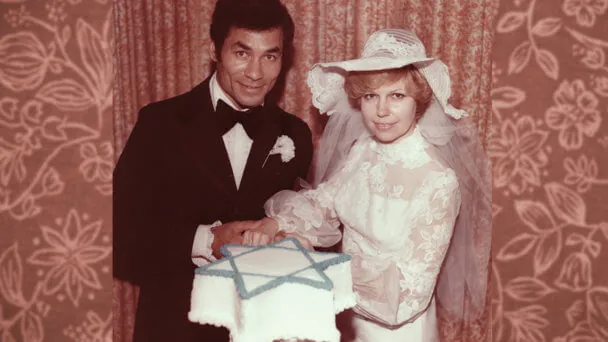
Comment tout a commencé
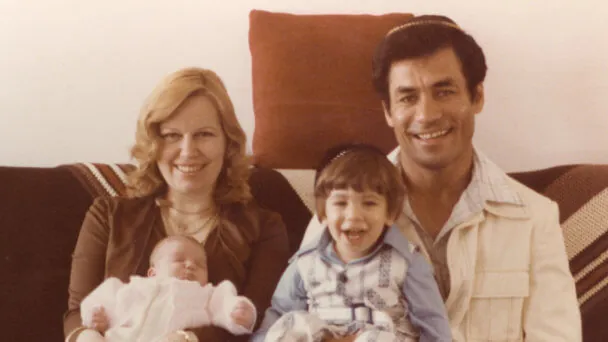
Quand Ari a rencontré Shira
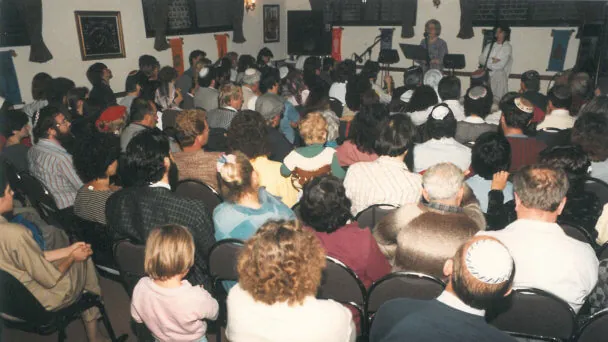
La première congrégation
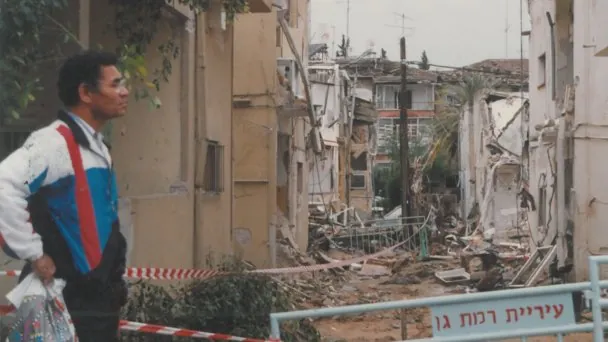
La guerre, les immigrants et le centre de formation
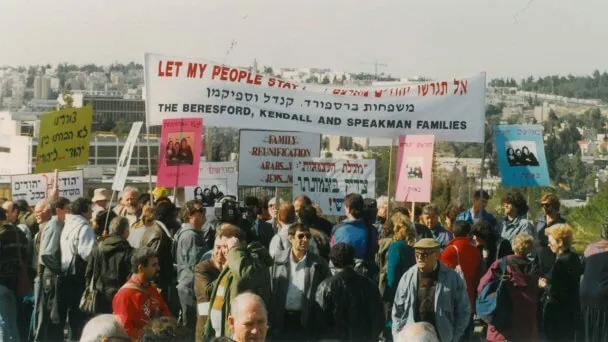
Le deuxième chemin de fer clandestin d'Israël
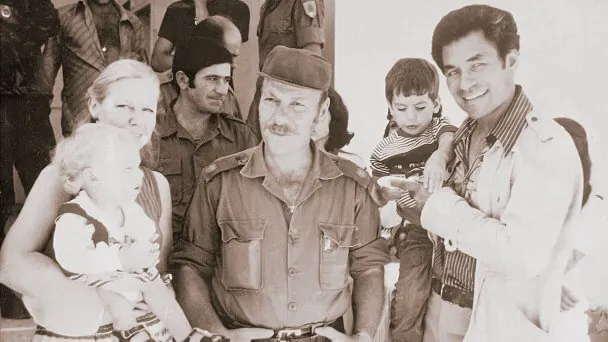
Le major et le millionnaire
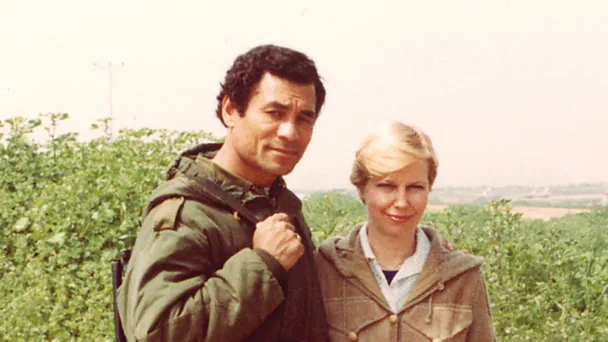
Journal d'un soldat israélien

Le droit d'exister
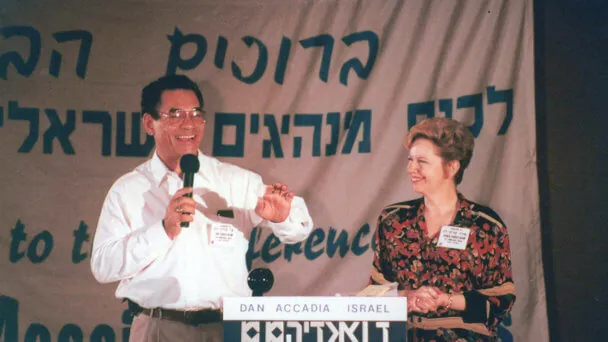
Ne jamais dire jamais
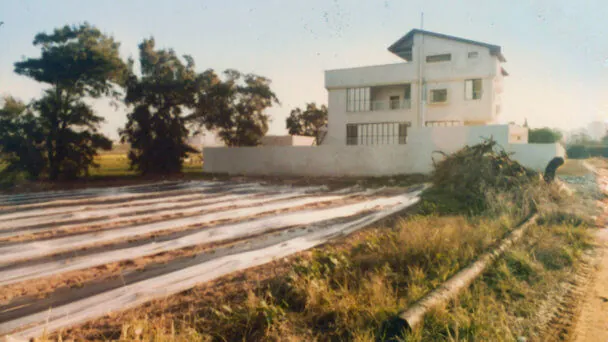
La naissance de Tiferet Yeshua
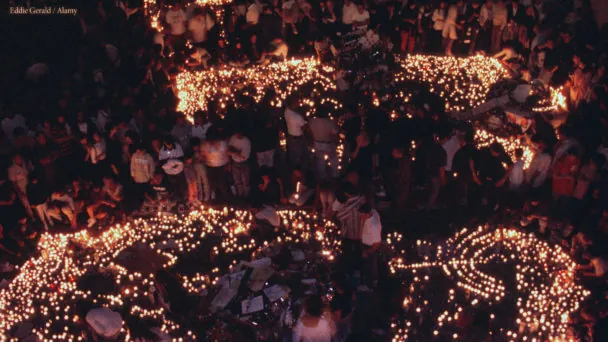
Une étincelle dans l'obscurité
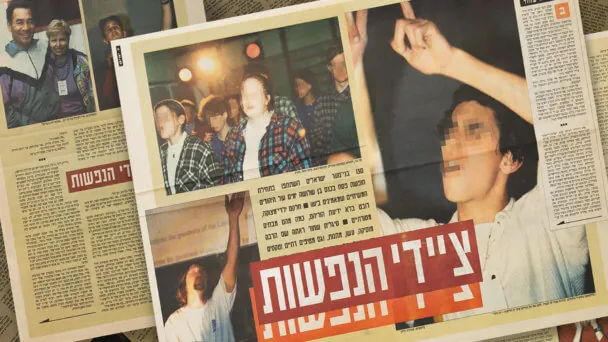
Les nouvelles et la police
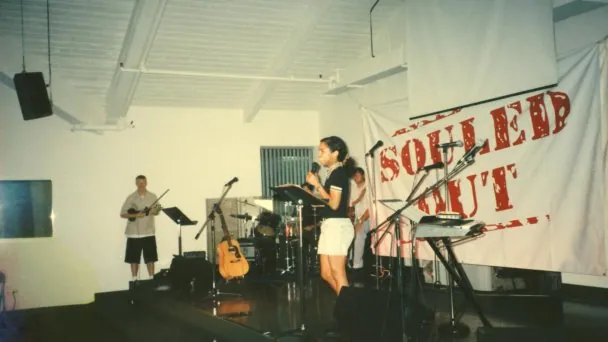
Souled Out arrive en Israël
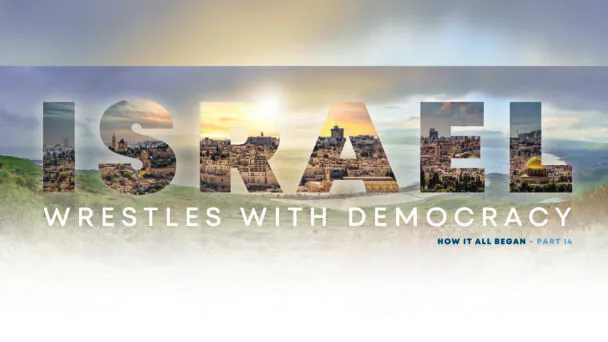
Israël aux prises avec la démocratie
